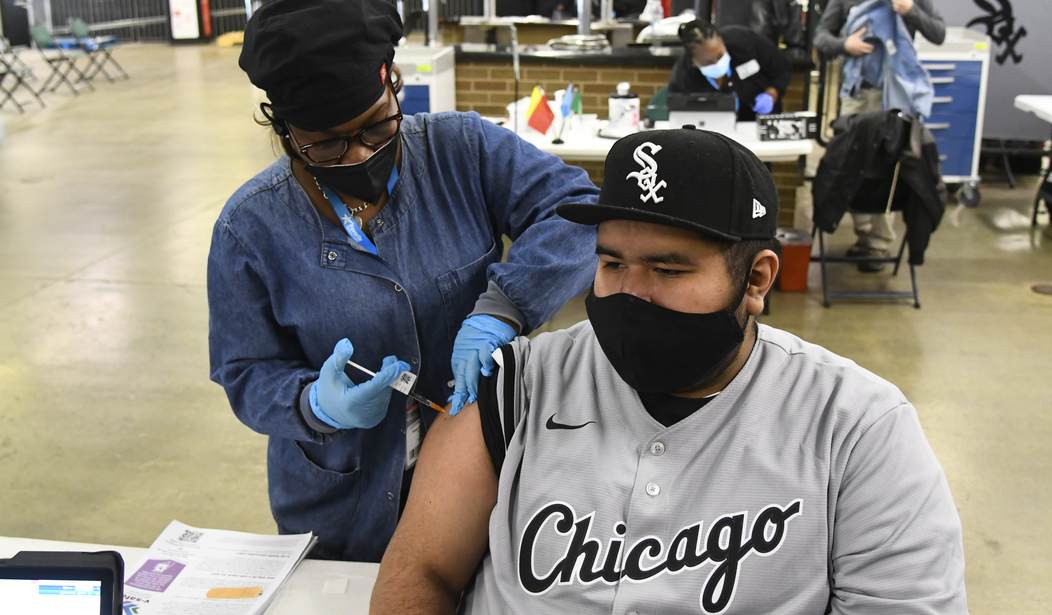The Daily Caller has the results of a recent WaPo-ABC News poll this week dealing with people’s feelings about employer vaccination mandates. More than half of U.S. employers recently indicated that they plan to have some form of a requirement for proof of vaccination or regular negative COVID test results as a condition of employment by the end of the year. The biggest demographic dividing line in these survey results didn’t show up along lines of gender, race or age, however. The widest gap was seen between the vaccinated and the unvaccinated. As you might expect, people who were already willing to be vaccinated were far less bothered by the idea of employers requiring vaccinations. But among the unvaccinated, the difference was stark. Almost three quarters of them said that they would rather quit their jobs than be forced to take the vaccine.
A new poll from The Washington Post and ABC News found that nearly three-quarters of unvaccinated Americans would prefer to quit their job rather than be required to get a COVID-19 vaccine.
According to the poll, only 16% of unvaccinated workers would get the shot if required. Thirty-five percent would request a medical or religious exemption, and 42% would quit their job…
If a medical or religious exemption were not available, 72% said they would quit the job, compared to just 18% who said they would get the shot.
Not everyone believes that those protesting the idea would carry through with their threat and quit their jobs. Author and journalist James Surowiecki considers this a case of talk being cheap.
This is the definition of cheap talk – in the economists' sense of the phrase. It costs these people nothing to *say* they would quit. But if it actually comes down to it, will most of them quit? Not a chance.https://t.co/xEeYFoWQnI
— James Surowiecki (@JamesSurowiecki) September 5, 2021
How well a strategy like this would work out for those choosing to take a stand remains to be seen. It would probably depend largely on how many people actually carried through with the threat. Right now we have an unprecedented number of unfilled job openings in the country because of people refusing to go back to work. If a sufficient number of people began quitting and doing so specifically because of a vaccine mandate, employers might have to quickly reconsider the policy just to remain in operation.
How big that number might be is anybody’s guess. I would tend to agree that at least some of the respondents who are saying they would quit might think differently when it came time to turn in their notice and lose their income and benefits. Some would certainly do it if they felt the mandate endangered their health. But not all of them.
The idea of medical or religious exemptions sounds rather dubious in most cases as well. In order to prove a medical exemption, you would need some sort of documentation from your doctor indicating that you have underlying medical issues that could make the vaccination problematic. That doesn’t apply to very many people in the working-age population. And as for a religious exemption, to my knowledge, none of the major religions forbid their members from being vaccinated. Lawsuits probably won’t do much to help either. The courts have previously weighed in on challenges against employers requiring certain vaccinations and they’ve generally sided with the employers.
Of course, the other side of this coin is that all of the employers saying they are “considering” having a mandate by the end of the year may not carry through on it. It’s still an unpopular idea among many sectors of the populace. Just this morning, CNN reported that Joe Biden’s approval for how he’s handled the pandemic response has dropped ten points since June and he’s now barely above 50%. And that news is coming just as the President is announcing a new spate of mandates regarding vaccines and masking for both the public and private sector. If his numbers go down any further after that, I’m guessing that at least some employers will be having second thoughts.








Join the conversation as a VIP Member